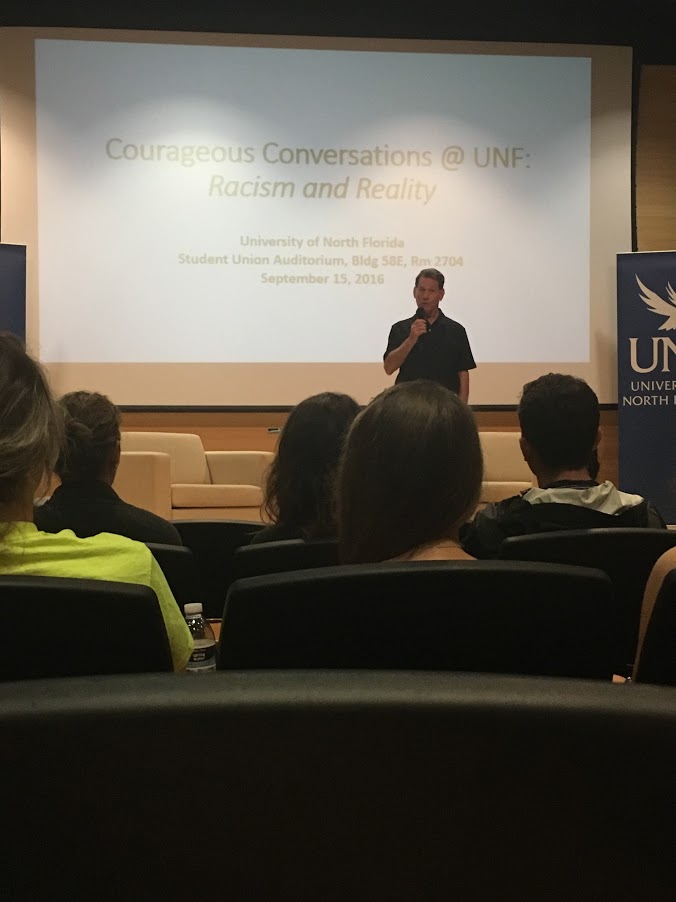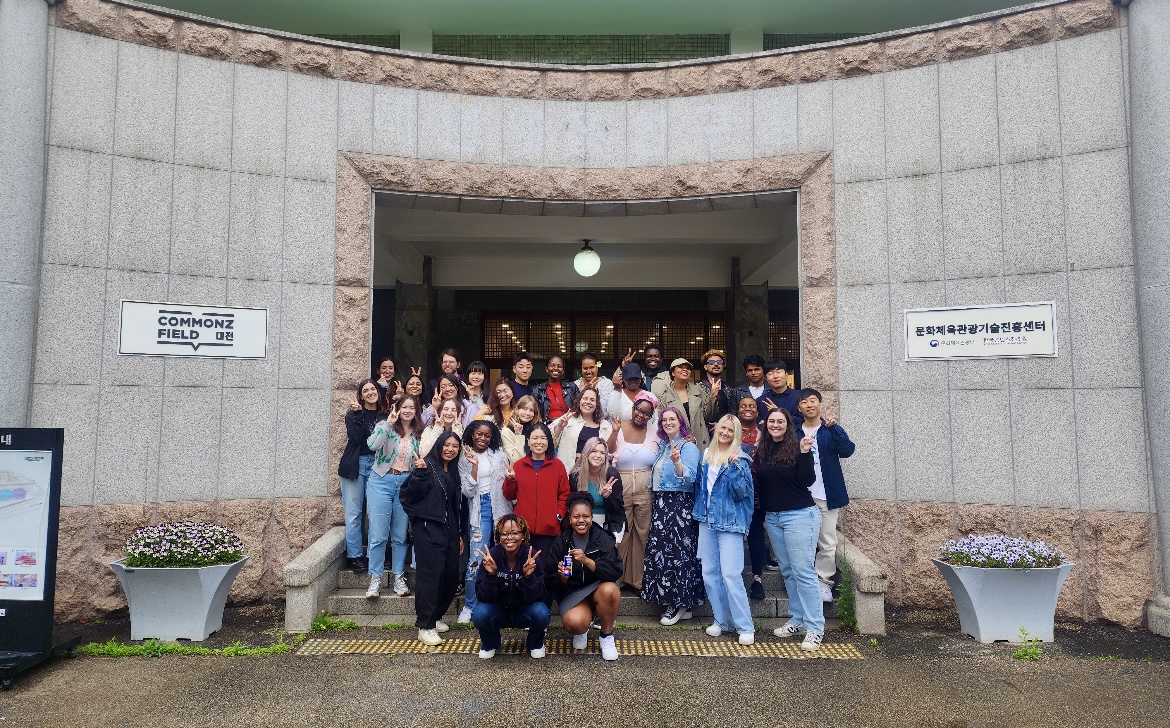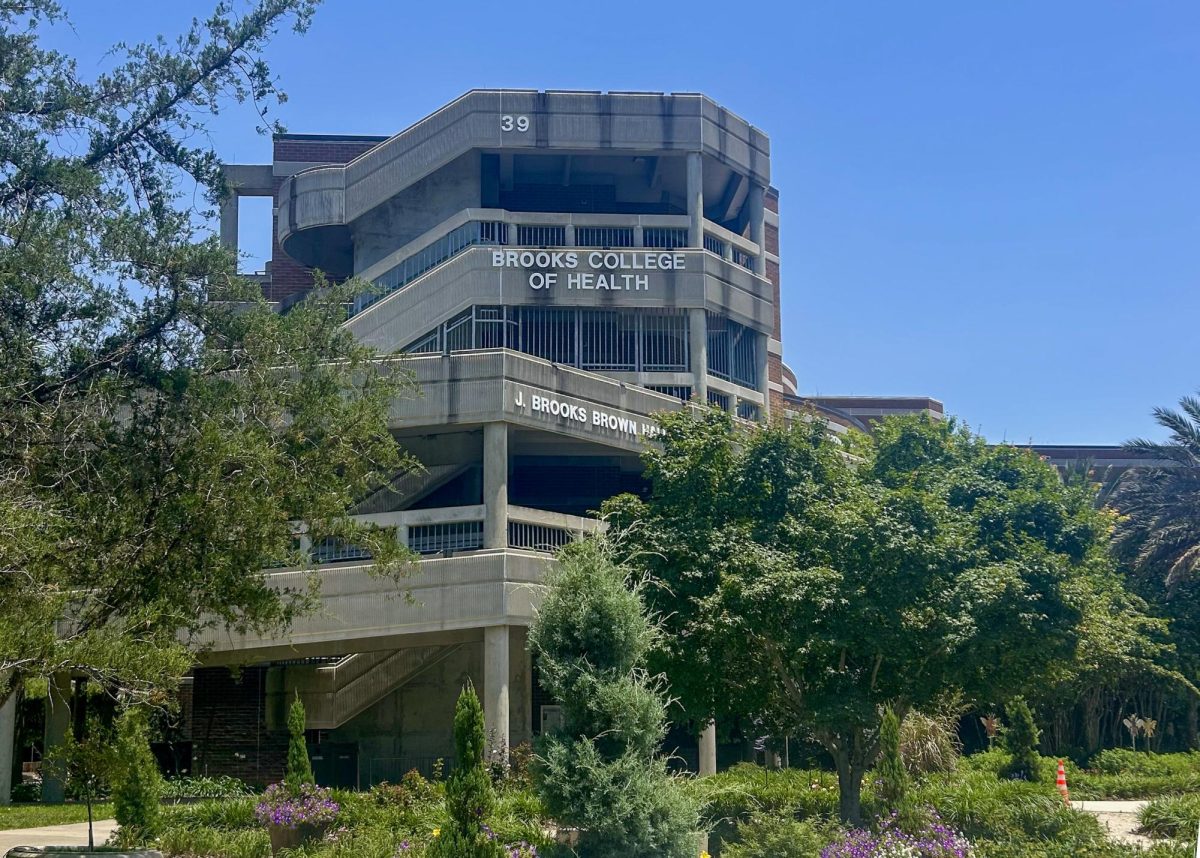
The Student Union Auditorium was packed with a set of curious and diverse students, staff and faculty members. Courageous Conversations: Racism and Reality was hosted by thirteen different local organizations and institutions that were focused on addressing current issues of race.
“We have to get these things out there and talk about them and do something about them,” said Dr. Roy Kaplan, one of the facilitators of Courageous Conversations and an adjunct professor at the University of South Florida.
This message turned out to be the overarching theme of the event.
As the presentation portion began, Dr. Navita James, associate professor of communication at University of South Florida, introduced basic terms used in conversations about race. She defined active, passive and institutional racism, as well as micro aggressions, implicit bias and white privilege.
As a sociology major and someone who aspires to become a race scholar, these terms weren’t new to me. However, most of the attendees raised their hand in acknowledgment of white privilege, while fewer were aware of the existence of institutional racism. The problem — as the presentation pointed out — is not in active racism, but rather passive racism, a racism that does not need one person perpetuating it.
James discussed social media’s role in bringing awareness to police brutality against minorities by showing images of young black men killed in police shootings, like Michael Brown, Trayvon Martin, Tamir Rice, Laquan McDonald, Walter Scott and Freddie Gray. The Black Lives Matter movement was featured next in the conversation. The movement, which began trending just after the shooting of Trayvon Martin, was described as the “next phase of the modern civil rights movement” by James.
Kaplan then cited statistics from Pew Research Center showing the distinct disadvantages minorities experience in economics, education, health care and the criminal justice system.

In a surprising turn of events, Kaplan and James instructed us to follow a group facilitator to a presentation room on the third floor to have a separate discussion about racial issues.
My group consisted of 14 diverse people with different backgrounds and experiences with racism. We introduced ourselves, talked about why we were there and shared our stories.
Some students spoke about their ignorance on the topic, while others expressed all too clearly their daily struggles of being a minority, both in society and on campus. While we only had 30 minutes to discuss a topic that was far more complex than the time permitted, many of our group members— myself included— were brought to tears by some of the stories told.
Rhianna Willis, a senior at UNF, was the first one in tears. She said how hard it was to be “the only black girl in my class.” According to other group members, her story of isolation was not an uncommon experience.
After the group broke apart, I shared an elevator with Kayla Jernigan, a sociology major set to graduate in December. I asked her what she thought of the experience, and her reply echoed a similar sentiment to my own: “I feel like we barely had a chance to get real and vulnerable.”
I asked Kayla Johnson, another sociology major, whether or not there had been any emotions in her group.
“Girl I was crying! There were definitely tears,” she told me.
It was refreshing to hear that there was such an element of vulnerability among so many people in a group of strangers, especially under a time constraint.
Each group returned with a representative to talk about the key takeaway from their discussion. Allie Hermann attended the event because of her education class. She was in a group comprised mostly of education majors, and said that their group focused on racism in schools and how “future educators need more diversity training.”
The consensus among a majority of the groups was to speak up, and have conversations about race, educate yourself and share your knowledge with others.
Our campus is looking to grow and have more conversations and events like this one. Dr. Kaplan encouraged everyone, as I encourage you, to speak out and speak clearly during conversations about race. Talk to organizations such as the Commission on Diversity and Inclusion, the Office of Equal Opportunity and Diversity, or the Institute for the Study or Racial and Ethnic Relations and tell them you want more of these events so we can continue to have courageous conversations about race.
—
For more information or news tips, or if you see an error in this story or have any compliments or concerns, contact editor@unfspinnaker.com.












M.J.Boesch | Sep 16, 2016 at 9:13 pm
Sensitive, intelligent piece about an issue too easily ignored. Bravo to both the writer and The Spinnaker!